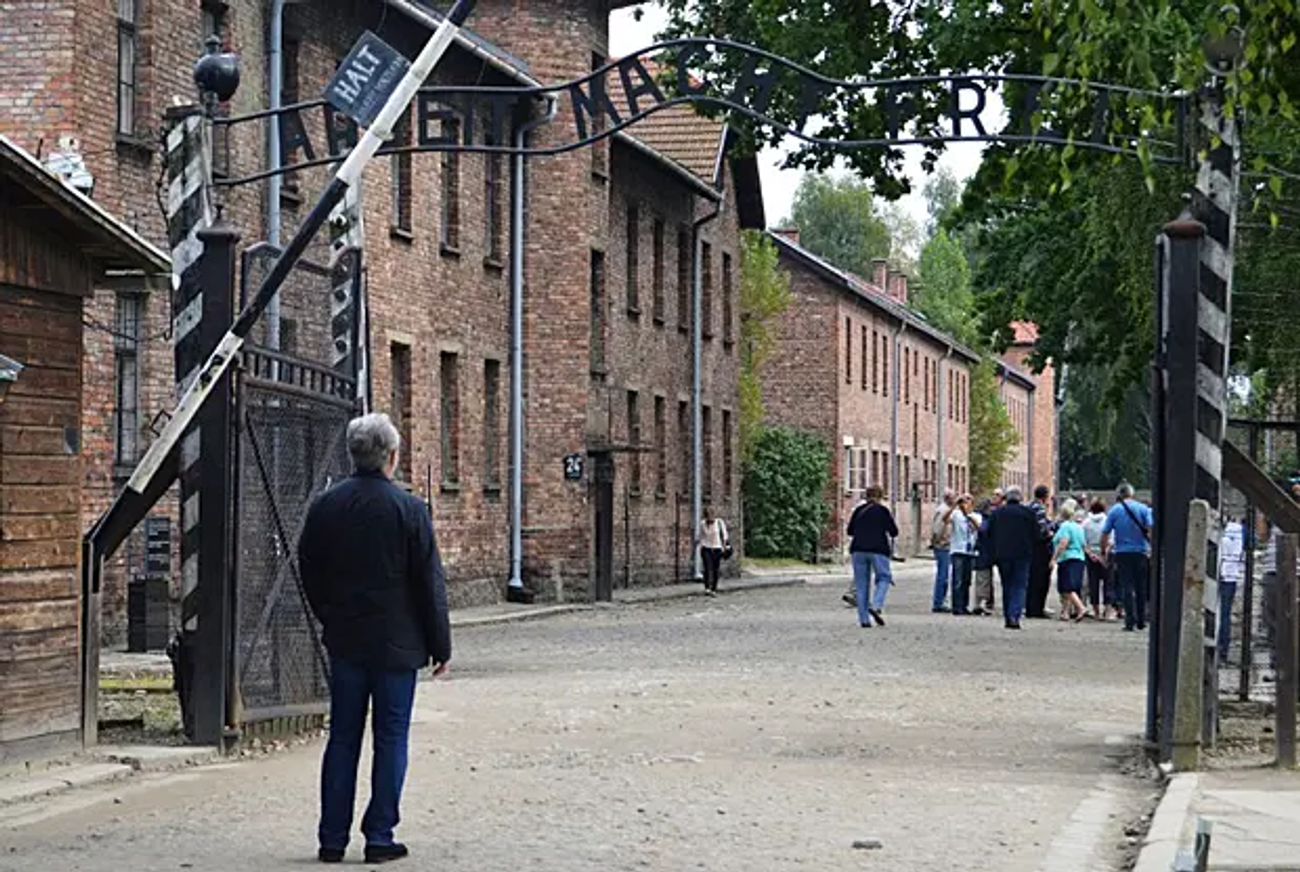Wolf Blitzer Explores His Jewish Roots
CNN host visits Yad Vashem and Auschwitz for the network’s ‘Roots’ series



Wolf Blitzer is the latest participant in CNN’s ‘Roots’ series, in which the cable news network has its hosts and talking heads explore their family history on-air. Blitzer’s installment, which aired last week, runs at two speeds: sacchrine and deeply moving. Wolf (née Zeev, the hebrew word for the animal) begins his 14-minute journey in Buffalo, N.Y., where he grew up, and where adoring locals actually chant his name when he walks into a bar. The second, more sobering segment features Blitzer traveling first to Yad Vashem in Jerusalem and then to Auschwitz and the surrounding town in Poland.
The video’s shift from upstate New York to Israel’s Holocaust museum is jarring, but Blitzer didn’t become Wolf Blitzer without the ability to guide viewers through emotional ups and downs. Blitzer’s family took a route so archetypal to 20th century Jews it could be called Rothian: Polish family suffers immeasurable loss during the Holocaust, survives out of ingenuity and luck, moves to America and never discusses it.
Blitzer, inspired by what he learned at Yad Vashem, travels to Auschwitz. After touring the former concentration camp grounds, he teams up with a local historian to find out more information about his family, yes the search is largely fruitless. Here we see a curious type of frustration from Blitzer, one the CNN anchor doesn’t seem to be used to. They can find addresses and old factories, but when they go door-to-door seeking some—any—memory of the names written on a piece of paper, they come up blank. Though the segment quickly moves past this dead end—this is a story for which characters are necessary, after all—it speaks to one of the most insidious aspects of genocide: how it removes individuals and their personalities from collective memory.
Blitzer is up there with Jon Stewart on the list of prominent Jews from whom Americans get their news on a daily basis. He’s a Camp Ramah alum who has never been shy about his religion (or defending Israel from critics, for that matter). That he’s willing to put a human face on the tragedy of the Holocaust is good, of course, but that he is willing to show the empty spaces where human faces once existed but no longer do, feels crucial.
You can watch the video here.
David Meir Grossman is a writer living in Brooklyn. His Twitter feed is @davidgross_man.